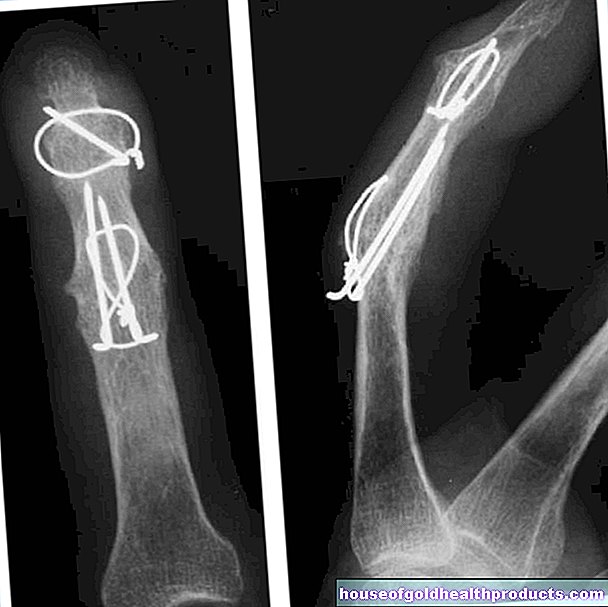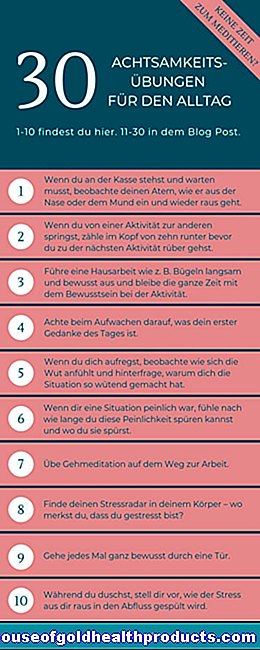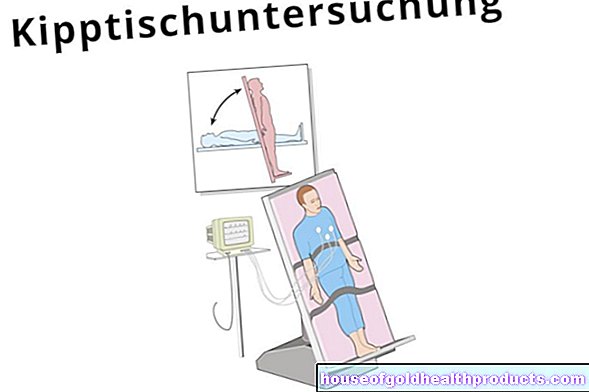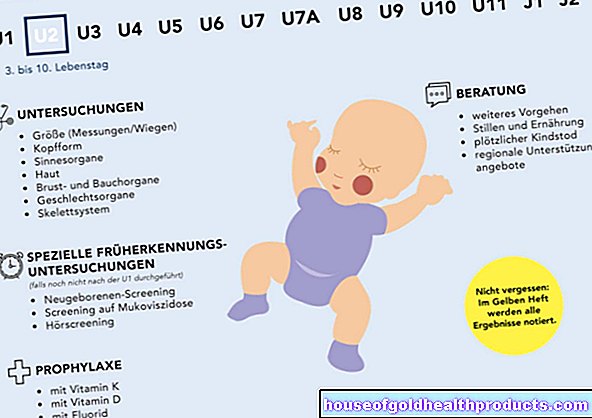Dyscalculia Test
Clemens Gödel is a freelancer for the medical team.
More about the experts All content is checked by medical journalists.A dyscalculia test is an important part of diagnosing a numerical weakness. Calculation tests and tests for determining intelligence form the basis. In order to be able to diagnose computational weaknesses, there must be a clear discrepancy between intelligence and computing power, among other things. The test results can also be used to monitor the progress. Read everything you need to know about the dyscalculia test here!
ICD codes for this disease: ICD codes are internationally recognized codes for medical diagnoses. They can be found, for example, in doctor's letters or on certificates of incapacity for work. F81
Why do you need a dyscalculia test?
A dyscalculia test is used to precisely identify numeracy difficulties. A number of complex test procedures (“test batteries”) have been developed and validated for this purpose. They are not always carried out in writing, but sometimes also as structured interviews - also with the parents.
Overall, there is a broad spectrum of age- and educationally specific weakness tests. This is very important, because this is the only way to assess the performance of a child using a comparison group that is as suitable as possible. Unfortunately, there is not a well-validated dyscalculia test that enables a reliable diagnosis for all age groups and school types.
A number of online tests can be found on the Internet. However, dyscalculia testing is very complex and should therefore be left to specialists. This is the only way to get a correct evaluation.
Dyscalculia - the math test
In order to objectify the arithmetic weakness and to assess the performance in different areas of mathematical thinking, age- and education-specific arithmetic tests are carried out. They not only record the school material, but also ask about general mathematical (basic) skills. Accordingly, a distinction is made between curriculum-based and criteria-based test procedures. Examples are Heidelberger Rechentest, DEMAT, BADYS, BASI MATH, ZAREKI-K, TEDI-MATH, playful dyscalculia tests and others. The supervising specialist decides which dyscalculia test is most suitable in each individual case. He will also observe the child while solving the tasks in order to understand his thinking and solution mechanisms.
With such a numeracy test, the weaknesses and strengths of the child can be identified. The results can be used specifically for individual treatment. Many of these dyscalculia tests can also be used to monitor and record the course of therapy.
Dyscalculia - the IQ test
If dyscalculia is suspected, a full intelligence quotient (IQ) test must be performed. By definition, the IQ of 100 is the average achieved by the comparison group. If a child achieves an IQ below 100, this is worse than the average. For the diagnosis of dyscalculia, an intelligence quotient of at least 70 should be achieved, otherwise the weakness in arithmetic can be explained by low intelligence.
Common intelligence tests are the Wechsler intelligence test (WI), the Hamburg Wechsler intelligence test (HAWIK), the Kaufmann assessment battery for children and the intelligence test structure test. These tests not only examine the overall IQ, but also differentiate between so-called partial performances. This makes it possible to differentiate between different skills such as language comprehension or working memory.
Dyscalculia - further tests
There are a variety of other tests that can be used to check for other characteristics such as alertness, motivation, or mental state. These tests are important because dyscalculia often coexists with attention deficit disorder or reading and writing impairments. The supervising specialist makes the test selection.
Further components of dyscalculia diagnostics
A dyscalculia test alone is not enough to determine whether a child has a numerical dysfunction or not. Other components of dyscalculia diagnostics are a diagnostic interview with the child and parents, a report from the school and a physical examination.
Tags: therapies interview menopause





























